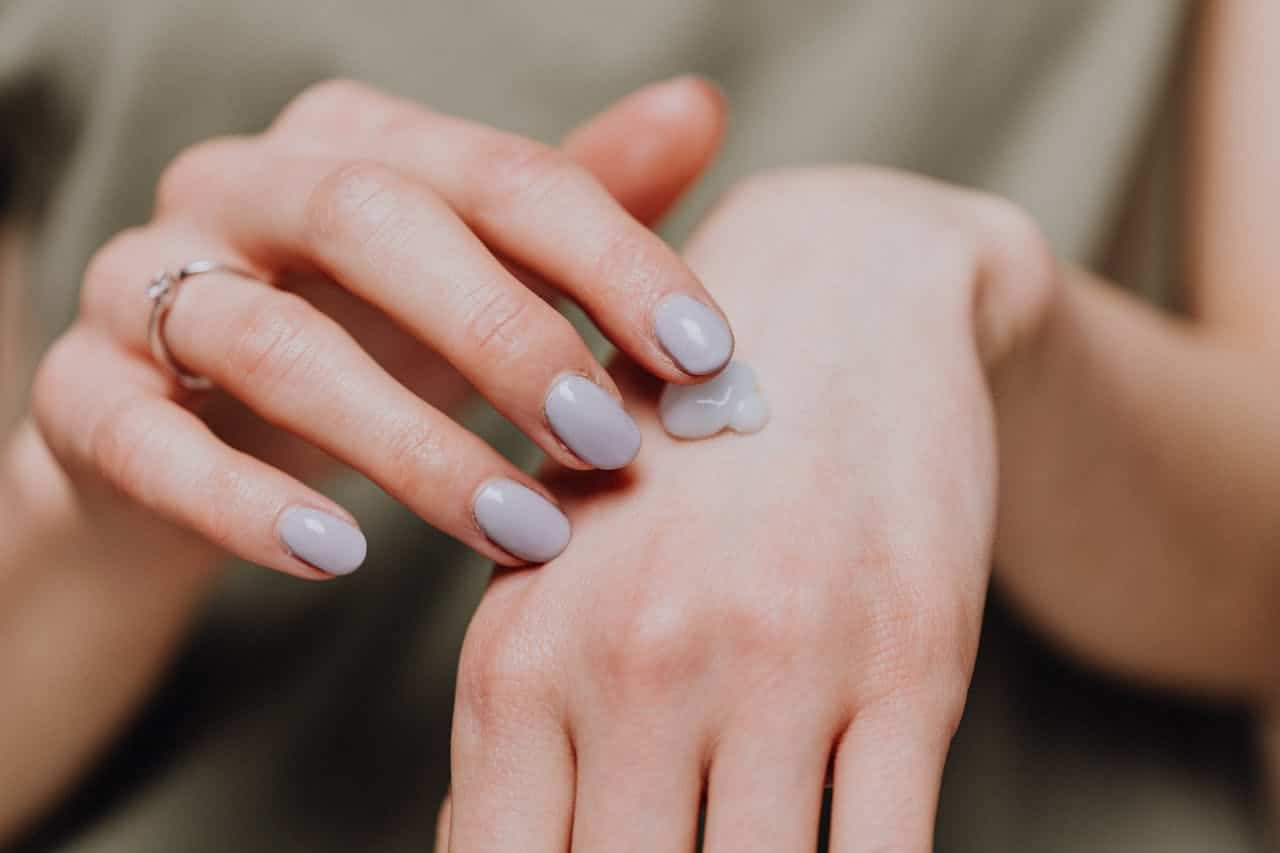Everyday habits often feel safe, even routine—especially something as simple as applying moisturizer to your skin. But what if a seemingly harmless skincare product held unexpected risks hidden beneath its soothing layers? Recent research has uncovered surprising findings about a few well-known moisturizers that may leave you questioning their safety, particularly in the context of sun-damaged skin.
As questions about the relationship between moisturizers and skin health arise, it becomes crucial to examine what lies beneath the surface of these products. What could this mean for your skincare routine, and how much do we really know about what we’re putting on our skin? The answers might not be as simple, or as reassuring, as they seem.
The Study That Raised Red Flags: Do Moisturizers Contribute to Skin Cancer?
A groundbreaking study conducted by researchers at Rutgers University uncovered unexpected findings regarding the link between moisturizers and skin cancer in mice. This investigation, led by Dr. Allan H. Conney, revealed that several commonly used moisturizers promoted tumor growth in a mouse model of sun-related skin cancer. These findings have sparked debate and concern, highlighting the need for further research into the safety of everyday skincare products.
The Experiment
To simulate sun-damaged skin, researchers exposed hairless mice to ultraviolet (UV) radiation twice a week for 20 weeks, a process akin to excessive sun exposure in humans. Following this, the mice were treated with moisturizers five days a week for 17 weeks. The moisturizers tested included Dermabase, Dermovan, Eucerin Original Moisturizing Cream, and Vanicream—products widely recognized and used in skincare routines.
The results were striking. All four moisturizers increased tumor formation in the mice, with the following impacts:
- Dermabase: Increased the total number of tumors by 69%.
- Dermovan: Increased tumors by 95%.
- Eucerin: Increased tumors by 24%.
- Vanicream: Increased tumors by 58%.

What the Findings Suggest
The research identified a significant correlation between the use of these moisturizers and increased tumor growth in mice previously exposed to UV radiation. However, the study emphasizes that moisturizers themselves did not cause cancer. Instead, they appeared to accelerate tumor development in already-damaged skin.
The implications of this study are twofold. First, it raises questions about the safety of widely used moisturizers and their ingredients, particularly for individuals with sun-damaged skin. Second, it underscores the necessity for stricter testing and regulation of cosmetic products, as moisturizers are not subjected to the same rigorous safety standards as pharmaceuticals. [1]
The Science Behind the Concern: The Link Between Moisturizers and Skin Cancer
The unexpected findings from the Rutgers University study have prompted a closer examination of the components within moisturizers that may contribute to skin cancer development, particularly in UV-damaged skin. Understanding the mechanisms at play is crucial for both consumers and healthcare professionals.
How UV-Damaged Skin Reacts to Moisturizers
Ultraviolet (UV) radiation is a well-established risk factor for skin cancer, causing DNA damage and weakening the skin’s immune response.
When the skin is compromised by UV exposure, its barrier function is impaired, potentially allowing topical substances to penetrate more deeply and interact with cellular processes. In the Rutgers study, mice with UV-induced skin damage exhibited increased tumor development upon the application of certain moisturizers, suggesting that these products may exacerbate carcinogenic processes in already damaged skin. [2,3]
Ingredients Under Scrutiny
Two ingredients have been highlighted for their potential roles in promoting tumor growth: sodium lauryl sulfate and mineral oil.
- Sodium Lauryl Sulfate (SLS): Commonly used as a surfactant and emulsifier in skincare products, SLS has been associated with skin irritation.
In the Rutgers study, moisturizers containing SLS were linked to increased tumor formation in UV-exposed mice. - Mineral Oil: A byproduct of petroleum, mineral oil is used in moisturizers for its occlusive properties, which help retain skin moisture. However, concerns have been raised about its potential to promote tumor growth, particularly in UV-damaged skin. [3]
To investigate these concerns, researchers collaborated with Johnson & Johnson to create a custom moisturizer devoid of SLS and mineral oil. This formulation did not promote tumor growth in the mouse model, suggesting that these ingredients may play a role in the observed carcinogenic effects.
The Role of Skin Barrier Function
The skin’s barrier function is essential in protecting against environmental insults and regulating the absorption of topical agents. UV radiation can disrupt this barrier, increasing permeability and potentially allowing harmful substances to penetrate deeper into the skin. In compromised skin, ingredients like SLS and mineral oil may interact with cellular components in ways that promote carcinogenesis. [3]

Should You Stop Using Moisturizers? Balancing Benefits and Potential Risks
The study has raised concerns about the potential link between moisturizers and skin cancer. However, it’s essential to consider the broader context and expert opinions before making changes to your skincare routine.
Dermatologists emphasize the importance of moisturizers in maintaining skin health. Experts advise against discontinuing moisturizer use based solely on the study’s findings. As we age, our skin becomes drier, and moisturizing is crucial to prevent conditions like eczema, dermatitis, and rashes.
Similarly, the American Academy of Dermatology highlights that moisturizers help maintain the skin’s barrier function, preventing dryness and irritation. They recommend selecting products suitable for your skin type and applying them regularly to keep the skin hydrated. [5]
It’s important to recognize that the Rutgers study was conducted on mice with UV-damaged skin, and the results may not directly apply to humans. The study’s authors themselves caution that further research is needed to determine if these findings are relevant to human skin health.

My Personal RX on Protecting Your Skin and Choosing Healthy Skin Care Products
Taking care of our skin is essential because it serves as the first line of defense against environmental aggressors, helps regulate body temperature, and plays a crucial role in our overall health and appearance. However, it’s equally important to be cautious about the products we use, such as moisturizers and other skincare items. Here are some essential tips to ensure that you maintain your skin’s health and vitality by using safe, effective products and practices.
- Use Sun Protection Daily: Protecting your skin from UV rays is crucial. Choose broad-spectrum sunscreens that guard against both UVA and UVB rays. Look for products with a minimum SPF of 30 and reapply every two hours when outdoors. Opt for sunscreens with zinc oxide or titanium dioxide as active ingredients for physical protection.
- Incorporate Omega-3 Fish Oil Supplements: Omega-3 fatty acids are known for their anti-inflammatory properties, which can help reduce redness and prevent skin damage at a cellular level. Regular intake of Omega-3 Fish Oil can improve your skin’s health from the inside out, promoting a natural glow and aiding in the repair of damaged skin.
- Stay Hydrated: Keeping your skin hydrated from the inside is just as important as moisturizing externally. Drink plenty of water throughout the day to maintain optimal hydration levels, which can help keep your skin supple and resilient.
- Choose Products Wisely: Avoid ingredients like parabens, phthalates, sulfates, and synthetic fragrances, which can be irritating or harmful over time. Use my Toxic Ingredient Guide to steer clear of harmful chemicals in products you buy from stores. This guide can help you make informed choices about the products you use on your body and at home.
- Moisturize Regularly: Applying a high-quality moisturizer helps maintain the skin’s barrier function and prevents moisture loss. Look for products containing hyaluronic acid, glycerin, and ceramides, which are effective at keeping skin hydrated and repairing the skin barrier.
- Eat Antioxidant-Rich Foods: Your diet plays a vital role in skin health. Foods rich in antioxidants can help combat skin damage from free radicals. Include plenty of colorful fruits and vegetables in your diet to boost your skin’s defense against environmental damage.
- Be Gentle with Your Skin: Avoid harsh scrubbing or over-exfoliating, which can strip the skin of its natural oils and weaken its barrier. Use gentle, non-abrasive cleansers and pat your skin dry with a soft towel instead of rubbing it vigorously.
- Patch Test New Products: Before using a new skincare product over your entire face or body, do a patch test on a small area of skin (like behind the ear) to see how your skin reacts. This can prevent potential allergic reactions or irritation.
- Consult with a Dermatologist Regularly: A dermatologist can provide personalized advice tailored to your skin type and needs. They can help you develop a skincare routine that addresses your specific concerns, such as acne, aging, or sensitivity.
- Mind Your Makeup: Opt for non-comedogenic and hypoallergenic makeup to avoid clogging pores and triggering skin irritation. Always remove makeup before bed to allow your skin to breathe and recover overnight.
Sources:
- Lu, Y., Lou, Y., Xie, J., Peng, Q., Shih, W. J., Lin, Y., & Conney, A. H. (2008). Tumorigenic Effect of Some Commonly Used Moisturizing Creams when Applied Topically to UVB-Pretreated High-Risk Mice. Journal of Investigative Dermatology, 129(2), 468–475. https://doi.org/10.1038/jid.2008.241
- Yong, E. (2021, April 12). Do moisturisers cause skin cancer? Cancer Research UK – Cancer News. https://news.cancerresearchuk.org/2008/08/14/do-moisturisers-cause-skin-cancer/
- Ultraviolet radiation and skin cancer. (2024, May 1). Cleveland Clinic. https://my.clevelandclinic.org/health/diseases/10985-ultraviolet-radiation
- Cosmetics and cancer risk. (n.d.). American Cancer Society. https://www.cancer.org/cancer/risk-prevention/chemicals/cosmetics.html
- How to pick the right moisturizer for your skin. (n.d.). https://www.aad.org/public/everyday-care/skin-care-basics/dry/pick-moisturizer
- Office of the Commissioner. (2022, November 21). Product testing of cosmetics. U.S. Food And Drug Administration. https://www.fda.gov/cosmetics/cosmetics-science-research/product-testing-cosmetics
- Office of the Commissioner. (2023, September 29). Small Businesses & Homemade Cosmetics: Fact sheet. U.S. Food And Drug Administration. https://www.fda.gov/cosmetics/resources-industry-cosmetics/small-businesses-homemade-cosmetics-fact-sheet












 Subscribe to Ask Dr. Nandi YouTube Channel
Subscribe to Ask Dr. Nandi YouTube Channel









